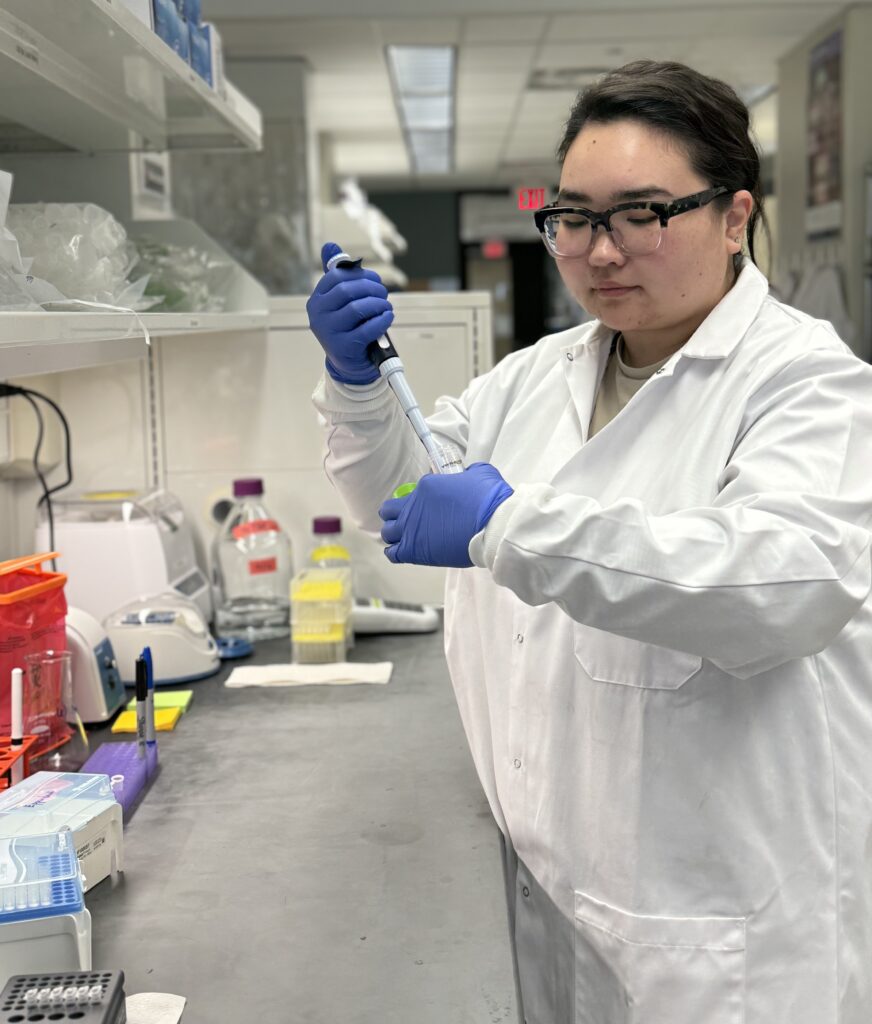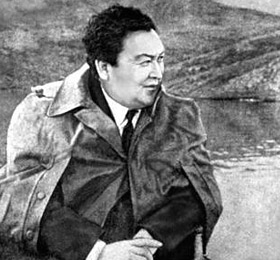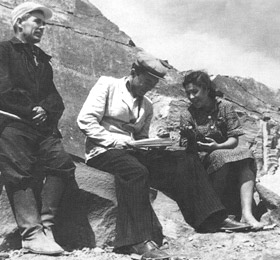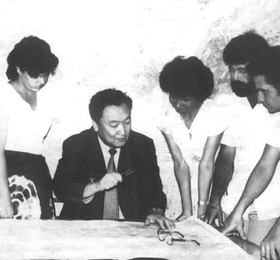Zhibek Bekezhankyzy
Specialities: Chemistry, Pharmacology, Toxicology, Biology. Internship: University of Michigan, USA.
 The resident of Almaty and Nazarbayev University’s graduate Zhibek Bekenzhankyzy is 27 years old. A couple of years ago, she won the Yessenov Foundation’s grant and completed an internship at one of the best laboratories in the world, having gained tremendous experience. What did the young Kazakhstani scientist study there, and what is she occupied with these days? We asked Zhibek to tell about her experience.
The resident of Almaty and Nazarbayev University’s graduate Zhibek Bekenzhankyzy is 27 years old. A couple of years ago, she won the Yessenov Foundation’s grant and completed an internship at one of the best laboratories in the world, having gained tremendous experience. What did the young Kazakhstani scientist study there, and what is she occupied with these days? We asked Zhibek to tell about her experience.
First, we would like to ask you a traditional question. Why and how did you choose this specialization?
While studying for a master’s degree in Pharmacology and Toxicology at Nazarbayev University, I studied the effect of metformin on breast cancer cells. It was particularly interesting to study pharmacodynamics and pharmacokinetics (how a drug behaves in the body), as well as their effects on cancer. Having worked with tumor cells, I began to study glioblastoma in depth. It is one of the most aggressive forms of brain cancer, for which effective treatment methods have not yet been developed, and the number of studies in this area is limited. Thus, I began to specialize in brain cancer biology as well.
How did you do in the competition?
There were four stages in the competition: submission of documents, individual interview, group interview and a general knowledge test. What I liked most in the competition was the group interview, where we had to demonstrate leadership qualities, respect for other grant applicants, and exercise our wit. This was a great opportunity to prove yourself in teamwork. So, first of all, I advise future participants to clearly understand what you want to achieve and have clear goals and plans for the future. By talking about this, you will demonstrate at the competition why it is worth investing in you.
Tell us about your internship experience.
The internship lasted exactly 90 days. In the first month, the professor and I built a laboratory from scratch. Over the next two months, I researched how drugs can affect the interaction of macrophages and glioblastoma. We tested 884 drugs on macrophages and measured the concentration of different proteins. So we have learned what drugs can affect glioblastoma through macrophages. I worked with different tools and technologies including flow cytometry and high-resolution microscopes. This helped in measuring and analyzing cellular interactions precisely.
What life hacks could you share with future Kazakhstani interns?
Be sociable and try to make more acquaintances in the new place. When you are away from home, it is important to have support, especially at difficult times. It is also pivotal to find a mentor — a professor who is interested in your career growth and is willing to share his/her knowledge. Strive for effective networking, be open and do not miss the opportunity to participate in various scientific conferences.
Zhibek, what key outcomes did you get from your internship in the USA?
It was an amazing experience to be directly involved in setting up a laboratory from scratch. We purchased equipment, negotiated with suppliers, managed logistics and space planning to ensure optimal placement of equipment. The experience of working with 3D models of brain cancer cells was also significant. They require a special approach, and the work methodology is quite complex. I also had an opportunity to participate in several scientific conferences and work at other laboratories. It was a tremendous and extremely valuable experience. I realized that we, Kazakhstanis, are competitive in the international arena, and our educational background allows us to successfully compete with the American one. When the internship ended, I received an invitation from my professor to work in the Department of Neurosurgery.
How did you like to spend your free time there?
Michigan is a very beautiful and green state, so I liked to spend my weekends walking in parks and exploring the city of Ann Arbor. I went to Detroit to the Detroit Pistons basketball and the Detroit Tigers baseball games. I made a lot of new friends who explained American football to me. I also visited New Orleans and enjoyed live jazz music there.
What are you doing these days, and what are your plans for the future?
After the Yessenov Foundation’s internship has ended I accepted the invitation from the professor. Now I am working as a research fellow in the Department of Neurosurgery at the University of Michigan. I have been doing research on the effects of drugs on macrophages and glioblastoma. In the future, I plan to enroll in a doctorate degree program in medicinal chemistry to continue studying the interaction of drugs and brain cancer cells.
23.12.24, Stories
Seen by: 896





